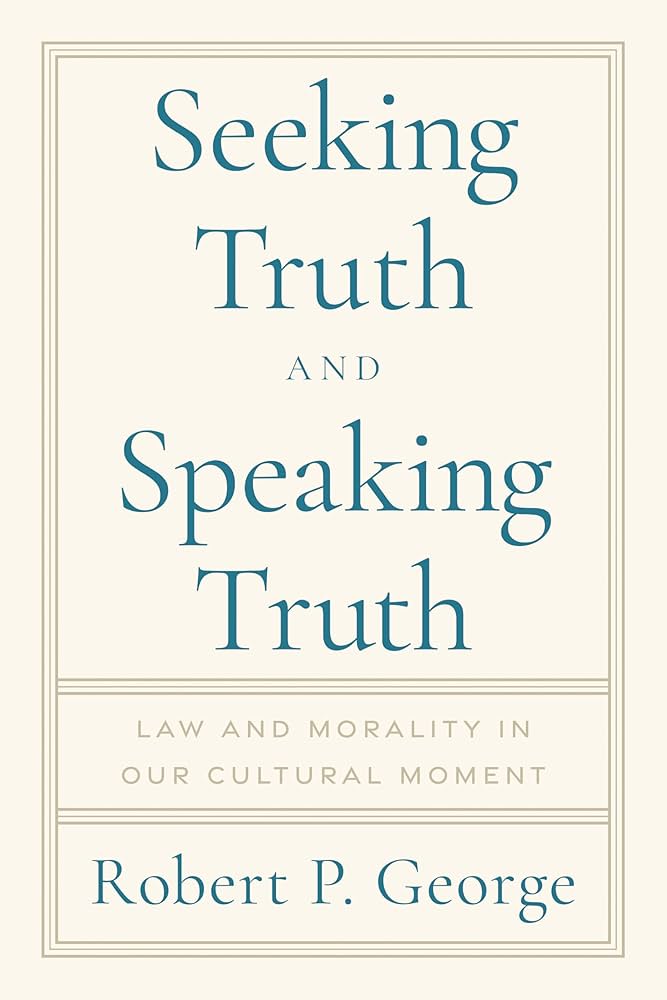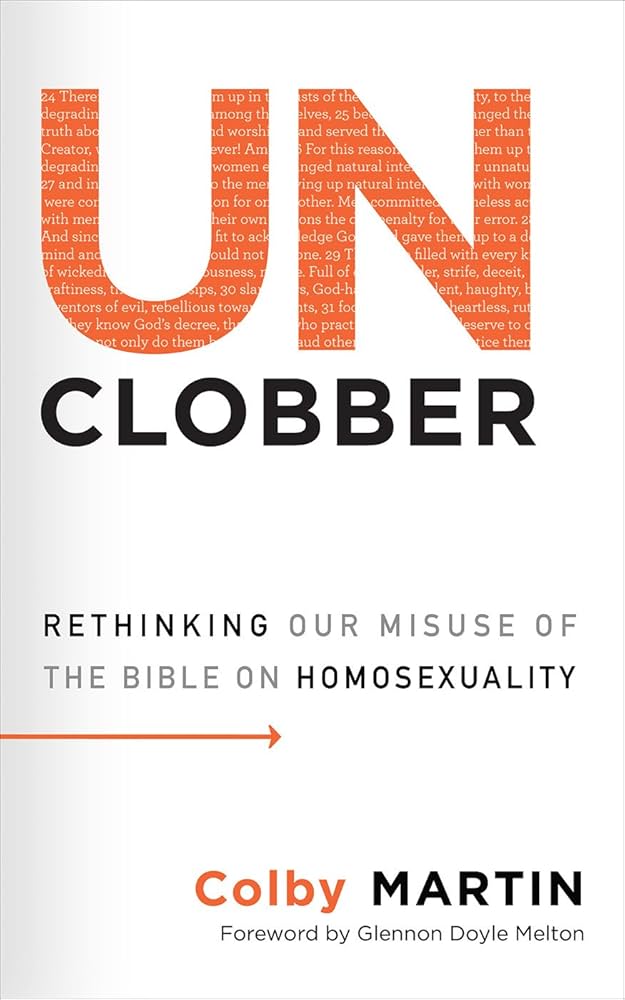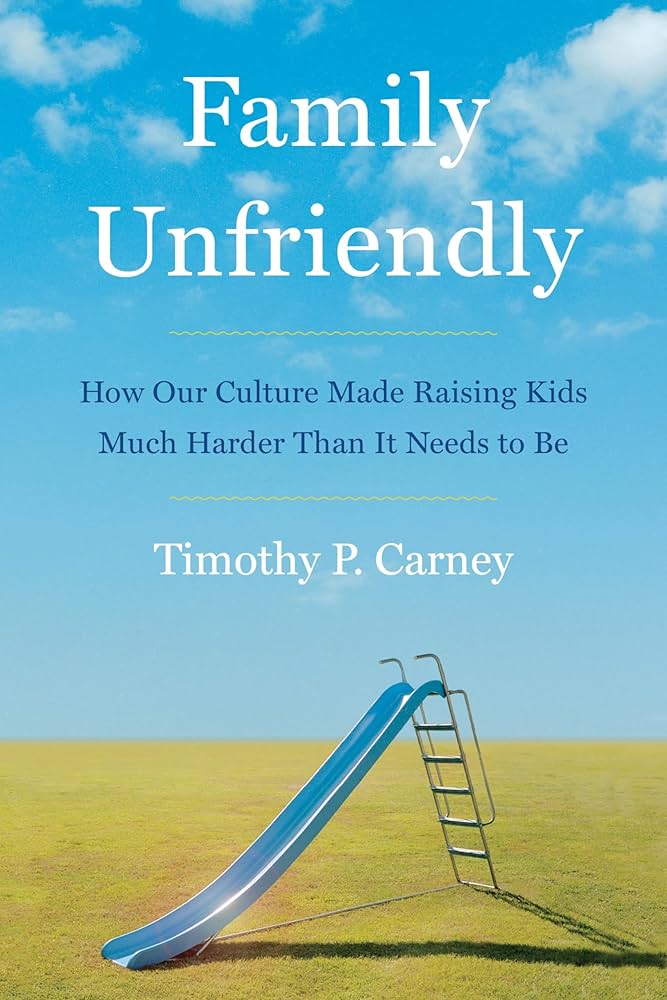
Editor’s Note: The following article appears in the Spring 2025 issue of Eikon.
Children are a gift from the Lord. Instructing one’s children to follow the Lord is a sacred undertaking, filled with both deep challenges and profound joys. But it is also a duty. While many such examples can be proffered from Scripture, only two will suffice. After God constituted his redeemed people Israel into a nation, he gave them laws by which they were to live together in righteousness and receive his blessing. For this reason, the Lord commanded the Israelite parents to teach their children these laws, instructing them, “You shall teach them diligently to your children, and shall talk of them when you sit in your house, and when you walk by the way, and when you lie down, and when you rise. You shall bind them as a sign on your hand, and they shall be as frontlets between your eyes. You shall write them on the doorposts of your house and on your gates” (Deut 6:7–9).
Clearly, God expected his people to prioritize frequent and daily instruction of his statutes. More than that, these instructions cast a vision of parenting as a comprehensive lifestyle of discipleship (see Deut 6:20–25). This same expectation can be reasonably imported into Paul’s command to fathers in the church in Ephesus when he called upon them to bring up their children “in the discipline and instruction of the Lord” (Eph 6:4). In brief, the Scriptures teach us to consider it a matter beyond question that parents have a responsibility to teach their children God’s Word and instruct them in obedience. Indeed, the Bible teaches us to consider this task as every parent’s most significant responsibility.
The State of Christian Parenting Today
But how are parents to accomplish this important task? And how are parents doing in this work today? Before offering a suggestion about the former question, let me provide some insight on the latter. It is not going well. While a shrewd observer may have already surmised this conclusion based on anecdotal observation, the following data may serve to confirm.
George Barna’s research suggests that as little as nine percent of those who profess to be a Christian have a biblical worldview.[1] To further illustrate this sad reality, in an even more recent study, Barna found that among those who are “theologically-identified, Born-Again Christians,” just twenty-four percent believe the doctrine of the Trinity. And of those whom Barna claims “possess a biblical worldview,” still only sixty-two percent claim to believe in the Trinitarian God of Scripture.[2] Given the fundamental nature of the Trinity to biblical orthodoxy, these surveys paint a sobering picture of the church today.
But Barna is not the only researcher who has found evidence of spiritual malnutrition. Ligonier Ministry and LifeWay’s The State of Theology, a research survey designed to “take the theological temperature of the United States,” yields similarly abysmal results. According to their most recent survey, roughly half of evangelicals deny God’s immutability and omniscience; nearly two-thirds believe we are born in a state of innocence; and a full forty-three percent believe “Jesus was a great teacher, but he was not God.”[3]
Parents, unsurprisingly, have not escaped this spiritual lethargy, as only two percent of those with preteens at home have a biblical worldview. This number is a mere four percent for parents of “self-identified Christians,” and eight percent for “Theologically defined born-again Christians.”[4] From these numbers a significant problem emerges: the impossibility of parents teaching their children a faith they themselves do not have. But how could we expect more from evangelicals, given that only a little more than half of their pastors evince a biblical worldview?[5] When the shepherds themselves fail to live up to the biblical standard of orthodoxy, we cannot expect their flocks to thrive.
While the larger state of the church and its leaders is beyond the scope of this essay, I would suggest that at least one reason for its current condition is a lack of systematic, doctrinal teaching. In short, the American church has failed to catechize herself in Christian doctrine. And for parents who seek to raise their children “in the discipline and instruction of the Lord” (Eph 6:4), they must seek out and employ faithful methods of doing so.
The Ancient Paths of Catechesis
Enter catechism. Many Protestants today are unfamiliar with the term, or associate it with the Roman Catholic Church. This situation is tragic, since catechisms have been part of the Protestant tradition since its inception, and the process of catechesis has been the practice of the church since its founding. The English term catechesis derives from the Greek word κατηχέω (katēcheō), which appears eight times in the New Testament in reference to the reporting of information (e.g., Acts 21:21, 24) or to the act of instructing — most often in reference to Christian teachings (e.g., Acts 18:5).[6] Over the history of the church, the term has taken on a more technical sense denoting a formal process of teaching fundamental Christian truth.[7]
In the early church, catechesis in the general sense took on various forms according to the discipleship needs of the church. It involved verbal instruction on the basics of the Christian faith, which included doctrinal, moral, and liturgical elements, often centering around the Lord’s Prayer and the Apostles’ Creed. Ambrose, for instance, required his catechumens (those being taught in preparation of baptism) to recite and memorize his teachings. During these early centuries of the church, catechesis was used for multiple purposes. It could be used to prepare candidates for baptism, to instruct new believers in Christian faith and practice, in preparation for initiation, or to inform pagan or Jewish unbelievers of Christianity. Regardless of the exact method or specific purpose of catechesis, it always involved instruction in the rudiments of the Christian faith.[8]
While it was during the Middle Ages that catechisms developed into the question-and-answer format for which they are known today, catechesis in the broader sense took on new significance during the Protestant reformation.[9] At this time, the Reformers sought to inculcate the doctrines of the reformation in their churches and distinguish their teachings from the Roman Catholic Church as well as other emerging Protestant sects. To this end, catechisms became strategic tools for the reform and discipleship efforts of these fledging churches.
As we seek to renew the church and Christian families today, Protestants would do well to consider the examples from two of their most admired forefathers.
The German Reformer Martin Luther’s (1483–1546) two catechisms comprised a vital aspect of his ministry and shaped the character of future catechisms among Protestants.[10] Luther published his Large and Small catechisms in 1529 as part of his broader education and discipleship strategy among the German people, which were designed to provide necessary doctrinal instruction to pastors, parents, and children.[11] He wrote these catechisms to remedy what he saw as the gross ignorance of biblical truth among the people — as well as the pastors — of Germany. (A situation that is in some respects not too unlike ours today.) The Large Catechism, he explained, “contains what every Christian should know. Anyone who does not know it should not be numbered among Christians nor admitted to any sacrament.” In other words, it comprised a compendium of necessary, biblical basics. As a form of doctrinal teachings “for the instruction of children and the uneducated,” Luther insisted that “it is the duty of every head of a household at least once a week to examine the children and servants one after the other and ascertain what they know or have learned of it, and, if they do not know it, to keep them faithfully at it.”[12] Luther, therefore, conceived of catechesis as a responsibility not only of pastors, but also of parents.
The next generation of reformers, such as John Calvin (1509–1564), also recognized the importance of catechesis for the reformation of families and the church. After Calvin and his fellow Genevan pastors lobbied the civil magistrate to impose a requirement for children to be taught the basics of Christianity, Calvin composed a brief catechism, Instruction and Confession of Faith (1537), to facilitate their instruction.[13] Later, Calvin composed a more expansive catechism, The Catechism of the Church of Geneva (1541), which served as an influential doctrinal standard and valuable theological curriculum and teaching manual. Due to its size, it was subsequently published as weekly lessons for more manageable consumption.[14] Additionally, pastors opted to compose their own abridgements of the catechism so that young children could memorize it. A popular abridgement at this time, entitled The French ABCs, included an abbreviated catechism along with the French ABCs, a table for learning numbers up to 100, and basic Christian teachings such as the Lord’s Prayer and Ten Commandments. Clearly, the reformers in Geneva believed learning biblical doctrine was at least as important and foundational to the Christian life as learning one’s numbers and ABCs.[15]
While schools and pastors played a central role in the catechizing the people of Geneva, parents were expected to catechize their own children, or to at least make sure they attended the established public opportunities for catechesis, such as the weekly Sunday catechism sermon. To this end, the Genevan magistrates once made a public announcement that “all fathers of families should be diligent in instructing both their children and their male and female servants, and require them to attend sermons and catechism classes.”[16] To the reformed in Geneva, the parents’ duty — with the responsibility falling principally on the head of the home — to catechize their children was not considered secondary or optional.
Although Calvin’s initial efforts were cut short by his removal from Geneva, one of his terms for returning included compulsory catechesis.[17] The reason for Calvin’s insistence on this point is powerfully stated in a letter he wrote to Edward Seymour, Duke of Somerset, and Regent of England under Edward VI, advising him on how to pursue spiritual reform:
Believe me, Monseigneur, the Church of God will never preserve itself without a Catechism, for it is like the seed to keep the good grain from dying out, and causing it to multiply from age to age. And therefore, if you desire to build an edifice which shall be of long duration, and which shall not soon fall into decay, make provision for the children being instructed in a good Catechism, which may shew them briefly, and in language level to their tender age, wherein true Christianity consists.[18]
Calvin’s conviction about the necessity of catechism was not unique to him. Virtually all the reformers engaged in systematic catechesis. In Calvin’s case, he and his fellow Genevan pastors merely copied the playbook of other reformers.[19] Their strategy would continue across Europe during the Reformation and post-Reformation period, encompassing nearly the whole of the emerging Protestantism.
A Return to Protestant Catechesis
To answer the question above regarding how parents are to instruct their children, might I suggest that parents imitate Calvin, who imitated Luther and the other reformers, who imitated sundry Christians through the early church and middle ages, and adopt a strategy of catechesis. The historic Protestant catechisms, of which there are many, have stood the test of time and provide systematic summaries of essential Christian truths. The straightforward structure of these question-and-answer catechisms offer a simple, yet profound method for introducing children to the central doctrines of the faith. These carefully curated and constructed questions and responses inculcate children into a theological grammar — “a pattern of sound words” (2 Tim 1:13) — that forms a foundational framework on which they can grow in their understanding and ability to communicate the truths of Scripture.
Christian parents do not need to complicate the matter of discipling their children. Parenting is already challenging enough. Nor should parents delegate their discipleship responsibility to pastors, Sunday school teachers, youth pastors, or other church leaders. While the public ministry of the Word and sacrament within the covenant community is vitally important to the formation of all Christians, the role of the home in discipleship is paramount.
Obedience to the commands of Deuteronomy 6 and Ephesians 6 call for the simple and consistent practice of the ordinary means of grace in the home: Scripture reading, instruction, and prayer. To this end I know of no improvement upon the practice of catechesis that our Protestant forebears used to bring reformation to the Church. After all, our faith is, by the gracious work of God, the fruit of their spiritual legacy. For this reason, parents would be wise to follow the advice of the Puritan pastor William Gouge (1575–1653),[20] who taught parents how to follow the ancient paths of catechesis:
Let children be catechized constantly from day to day: rehearse them continually unto thy children, saith the Law [Deut 6:7]. That which is daily done, is in Scripture said to be done continually: as the sacrifice which was daily offered was called a continually offering. Here let this caveat be noted, that in giving this spiritual food, parents deal with their children, as skillful nurses and mothers do in feeding infants: they will not at once cram more into their mouths, then their stomach is able to digest, but they will rather oft feed them with a little: so it is not meet, that parents be too tedious; that will but dull a child’s understanding, and breed wearisomeness, and make it loath to be again instructed: but precept upon precept, precept upon precept, line upon line, line upon line, here a little, and there a little [Isa 28:10]. Thus shall they learn with ease and delight: and this being oft performed, in time a great measure of knowledge will be gained thereby. If a vessel has a little mouth, we use not to fill it by pouring whole pailfuls upon it, for so all may be spilt, and it receive little or nothing: but we let the liquor fall in by little and little, according to the capacity of the mouth; so is nothing lost, and the vessel filled the sooner. Thus are children to be dealt with.”[21]
[1] George Barna, “American Worldview Inventory 2021: Release #6: What Does It Mean When People Say They Are ‘Christian’” Cultural Research Center, August 31, 2021, https://www.arizonachristian.edu/wp-content/uploads/2021/08/CRC_AWVI2021_Release06_Digital_01_20210831.pdf.
[2] George Barna, “Most Americans—Including Christian Churchgoers—Reject the Trinity,” Cultural Research Center, March 26 2025, https://www.arizonachristian.edu/wp-content/uploads/2025/03/AWVI-2025_03_Most-Americans-Reject-the-Trinity_FINAL_03_26_2025.pdf. Clearly, one cannot have an orthodox, biblical worldview apart from a belief in the Trinity. Nevertheless, Barna’s research indicates that, according to his research, even among the cohort with a worldview most consistent with Scripture, the doctrine of the Trinity is not strongly believed.
[3] Their most recent survey can be found here: https://thestateoftheology.com
[4] George Barna, American Worldview Inventory 2022–23: The Annual Report on the State of Worldview in the United States (Glendale, AZ: Arizona Christian University Press, 2023), 17.
[5] George Barner, American Worldview Inventory 2022–23, 43–48. These findings were also published online, “American Worldview Inventory 2022: Release #5: Shocking Results Concerning the Worldview of Christian Pastors,” Cultural Research Center, May 10, 2022, https://www.arizonachristian.edu/wp-content/uploads/2022/05/AWVI2022_Release05_Digital.pdf.
[6] Moisés Silva, Revision Editor, New International Dictionary of New Testament Theology and Exegesis, 2nd ed. (Grand Rapids, MI: 2014), 2:647–648.
[7] It should be noted that “It is less clear whether the [verb] κατηχέω had yet become a technical term for Christian instruction…In any case, the use of this [verb] in the NT supplied the early Christians with a specific word for an essential aspect both of their evangelistic work and of their church life: teaching the saving acts of God.” Silva, ed., New International Diction of New Testament Theology and Exegesis, 2:648.
[8] Angelo Di Berardino, Ed. Encyclopedia of Ancient Christianity (Downers Grove, IL: IVP Academic, 2014), 1:443–457.
[9] “Catechesis — that is, basic Christian instruction — was a staple of the church from its earliest times. The rise of catechisms in the form with which we are now familiar — pedagogical tools structured by questions and answers to be learned by heart — arose in the Middle Ages, probably at the hands of one Bruno Würzburg in the eleventh century.” Carl R. Trueman, Luther on the Christian Life: Cross and Freedom (Wheaton, IL: Crossway, 2015), 109. Thomas Nettles calls this period “The Golden Age of catechisms.” Thomas J. Nettles, Teaching Truth, Training Hearts: The Study of Catechisms in Baptist Life, rev. ed. (Cape Coral, FL: Founders Press, 2017), 12.
[10] Andrew Pettegree, Brand Luther: 1517, Printing, and the Making of the Reformation (New York: Penguin Press, 2015), 262.
[11] For introductions on how Luther’s catechisms fit into his reform efforts, see Pettegree, Brand Luther, 259–266. Trueman, Luther on the Christian Life, 109–155. Robert Kolb and Timothy Wengert, Eds., “Editors’ Introduction to the Small Catechism” and “Editors’ Introduction to the Large Catechism” in The Book of Concord: The Confessions of the Evangelical Lutheran Church (Minneapolis, MN: Fortress Press, 2000), 345–347, 377–379.
[12] Martin Luther, “Preface,” The Book of Concord, 383.
[13] Scott M. Manetsch, Calvin’s Company of Pastors: Pastoral Care and the Emerging Reformed Church, 1536–1609 (Oxford: Oxford University Press, 2013), 19.
[14] Manetsch, Calvin’s Company of Pastors, 267n68.
[15] Manetsch, Calvin’s Company of Pastors, 267–269.
[16] Manetsch, Calvin’s Company of Pastors, 269.
[17] Manetsch, Calvin’s Company of Pastors, 266
[18] John Calvin, Tracts and Letters: Volume 5: Letters, Part 2 1545–1553 ed. Jules Bonnet, trans David Constable (Edinburgh, UK: The Banner of Truth Trust, 2009), 5:191.
[19] Manetsch, Calvin’s Company of Pastors, 19, 266.
[20] For a brief introduction to Gouge, see Joel R. Beeke and Randall J. Pederson, Meet the Puritans: With a Guide to Modern Reprints (Grand Rapids, MI: Reformation Heritage Books, 2006), 284–289.
[21] This quotation has been lightly modernized from William Gouge, Of Domestical Duties: Eight Treatises (London: Printed by John Haviland for William Bladen, 1622), 540.
Share This Article



